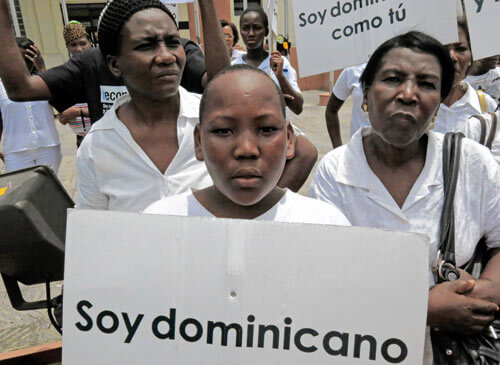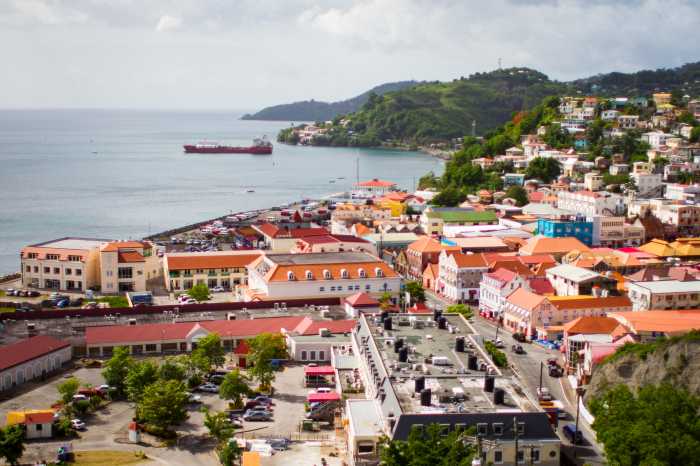SANTO DOMINGO, Dominican Republic (AP) — Experts warned Friday that a Dominican court decision to strip citizenship from children of Haitian migrants could cause a human rights crisis, potentially leaving tens of thousands of people stateless, facing mass deportation and discrimination.
Officials promised to create a path to Dominican citizenship, but gave no details about how it would work or who would be covered.
The ruling by the Constitutional Court is final and gives the electoral commission one year to produce a list of people to be excluded from citizenship.
The decision applies to those born after 1929 — a category that overwhelmingly includes descendants of Haitians brought in to work on farms. It appears to affect even their grandchildren, said Wade McMullen, a New York-based attorney at the Robert F. Kennedy Center for Justice & Human Rights.
A U.N.-backed study released this year estimated that there are nearly 210,000 Dominican-born people of Haitian descent and roughly another 34,000 born to parents of another nationality.
Many of those “are now effectively stateless,” McMullen said. “We really don’t know what’s going to happen to those people … Based on what the Dominican government is saying, these people are not Dominican citizens and will have to leave and effectively go to Haiti, where they are also not citizens. It creates an extremely complicated situation.”
The majority of them don’t have Haitian citizenship, have little or no ties to Haiti and likely don’t speak Creole, he said. Getting Haitian citizenship can be complicated too because it is difficult to comply with requirements to prove descent from a Haitian national.
Roberto Rosario, president of the electoral commission, insisted that the government is not denying anyone the right to a nationality, saying people would be able “to legalize themselves through the national legalization plan.”
However, that plan has not yet been created, despite a 2004 immigration law that called for it, and it was not clear who would be covered.
Once the plan is created and the electoral commission turns in its list, it will take no more than two years for legalization, said Immigration Director Jose Ricardo Taveras, member of a nationalist party that has long complained about the “Haitianization” of the Dominican Republic.
“Far from remaining in limbo like some critics are arguing, (they) will for the first time benefit from a defined status and identity without having to violate the law,” he said.
Meanwhile, the military announced that it had deported 47,700 Haitians caught entering the country in the past year, more than double the nearly 21,000 deported in the previous year.
Roxanna Altholz, associate director of the International Human Rights Clinic at the University of California Berkeley School of Law, said she was concerned about how the Dominican Republic has very deep roots of violent racism against Dominican-Haitians and Haitians.
“Are they going to do summary expulsions? Is the Dominican Republic going to conduct raids? I don’t know how they’re going to implement this decision,” she said.
The Dominican government is currently analyzing the birth certificates of more than 16,000 people, while electoral authorities have refused to issue identity documents to 40,000 people of Haitian descent.
“To all of a sudden be told no, you’re not Dominican, it’s very frustrating,” said Elmo Bida Joseph, a 21-year-old student who said he was denied his ID and a copy of his birth certificate because he was born to Haitian migrants.
“All my dreams have been broken,” said Bida, a baseball player who needed those documents to enroll in a baseball academy.
Now he worries he’ll be deported.
“I feel that’s around the corner. That in any moment I’ll be detained and they’ll send me to Haiti,” he said.
Spanish-speaking Dominicans and Creole-speaking Haitians share the Caribbean island of Hispaniola and have a long history of conflict and tense relations.
Haitian-American author Edwidge Danticat said it was “appalling” that the Dominican court has “chosen to commemorate the upcoming 76th anniversary of the October 1937 massacre of thousands of Haitians in the Dominican Republic by stripping Dominican-born men, women, and children of Haitian descent of their citizenship, rendering them not only stateless but unable to attend school or make a living while becoming even more vulnerable to all kinds of hostilities including, increasingly, physical violence.”
The office of Haitian Prime Minister Laurent Lamothe declined to comment about the ruling. The Dominican government estimates that some 500,000 people born in Haiti live in the Dominican Republic.
The right to citizenship had long been a matter of debate in the Dominican Republic. The government for decades would regularly grant citizenship documents to those born in Dominican soil to migrant parents until the 1990s, when it began randomly refusing those documents to the children of those who illegally entered the country, even if those workers had initially been given official documents.
In 2007, The Dominican Electoral Council officially ordered the denial of citizenship documents to all children born to illegal immigrants. Then in 2010, the government approved a new constitution stating that citizenship will be granted only to those born on its soil to at least one parent of Dominican blood or whose foreign parents are legal residents.
“The impact could be truly catastrophic,” said Jorge Duany, an anthropology professor at Florida International University who has studied the migration of Dominicans in the Caribbean. “They are stigmatizing an entire Haitian population.”
___
Danica Coto reported from San Juan, Puerto Rico. AP writer Trenton Daniel in Port-au-Prince, Haiti, contributed to this report.


























